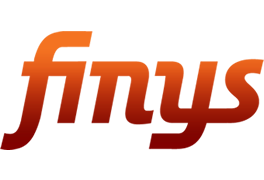Chickens, Eggs, and Language
In the insurance industry, which is highly regulated but stubbornly non-standard, we seem to spend a lot of time explaining ourselves, don’t we? Do you ever wonder why? We have a theory:
We think it’s because of human nature.
As human beings, we’re not terribly interested in smallest, slowest, oldest, least capable, or most common. Give us bigger, faster, newer, most powerful, and avant-garde and we’ll be there every time. And so it is we find ourselves having to explain terms like insurtech, innovation, and disruption.
Words Matter
The insurance industry has been using technology for decades — from the mainframes of the 1940s to the databases of the 1960s, from Univac to IBM, from COBOL to Java, from client/server networks to the cloud. Insurance may not have been the first industry to adopt it. But adopt it we did. In that context, insurtech is just another term for what has always been insurance technology.
And pardon us for saying so, but — while the insurance industry is gradually adopting technologies available to all industries (AI, robotics, machine learning, and telematics) — there hasn’t been any new processing technology to speak of in insurance for at least a decade. And even if there were, we wouldn’t know what to do with it yet, given the nature of technology adoption and the (justifiably) conservative nature of the insurance industry.
We tend to overestimate the effect of a technology in the short run and underestimate the effect in the long run. (Amara’s Law)
Give Us Our Change
And then we have innovation and disruption. We don’t mean to make light of this war of withering words. But in circumstances like these, we have to leave room for a little humor, don’t we? If not humor, at least a little curiosity. So, here’s an experiment you can try at the next conference you attend:
Walk into the session entitled, “Disruptive Innovation in InsurTech”. Let everyone in the room off the hook by not asking them to define insurtech. Give them the benefit of the doubt and presume their perspectives on disruption are positive; that is, they generally assume disruption to have a positive outcome, rather than a calamitous one. Then ask them if they can tell you how innovation and disruption are different from change.
In the ensuring silence, tell them you’d like your change back.
We Have Work To Do
Our facetious levity notwithstanding, there’s serious work to be done in the insurance industry. So, rather than trying to decide which came first — the chicken or the egg; insurtech or constructive pragmatism; innovation or change where it’s needed; disruption or calm, shared progress — maybe we should talk about what needs doing right now.
We have no idea what tomorrow’s jargon will be. But we’re positive insurers have to do business today.
Let’s put our faith in practical experience and plain language to get it done.




Trackbacks & Pingbacks
[…] One of the most constructive things we might do is ignore all the commotion about digital transformation. While organizations might need to transform (more likely they need to adapt and evolve), digital transformation has become all but indecipherable because it can’t be defined consistently. And it can’t be defined consistently because it’s too broad and, so, too vague. […]
Leave a Reply
Want to join the discussion?Feel free to contribute!